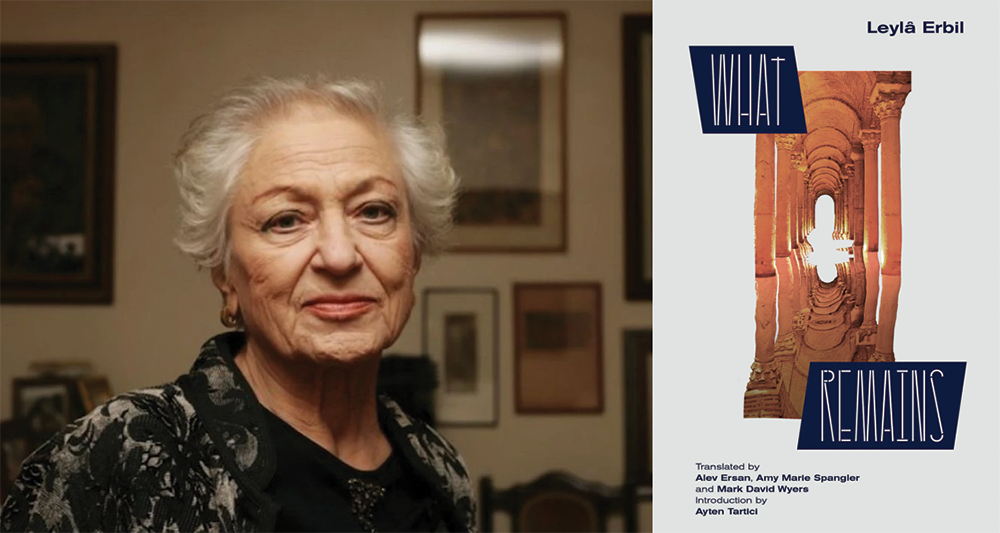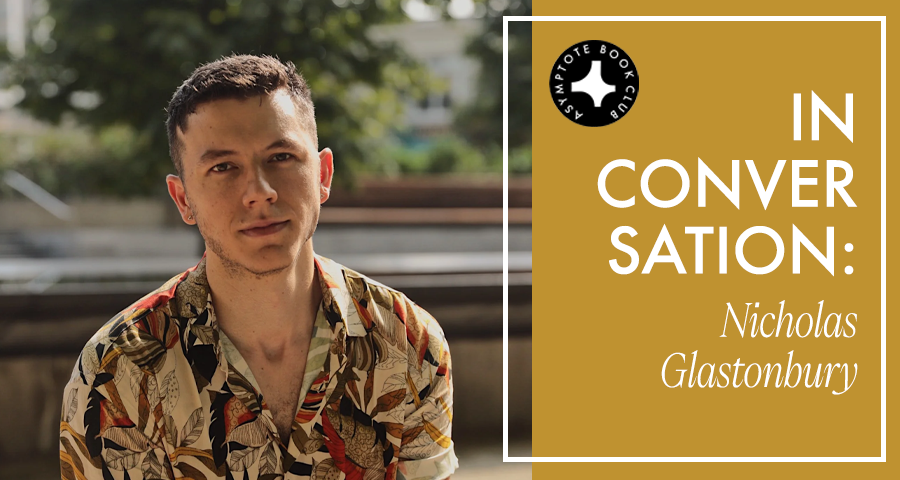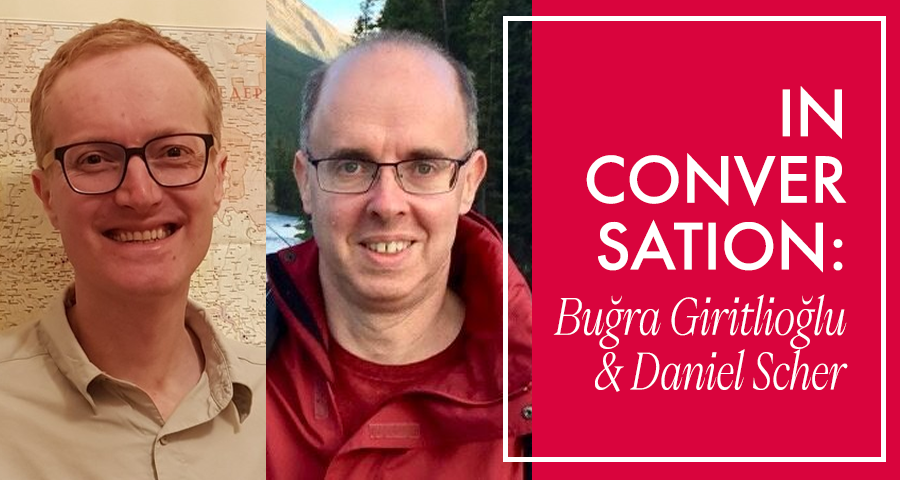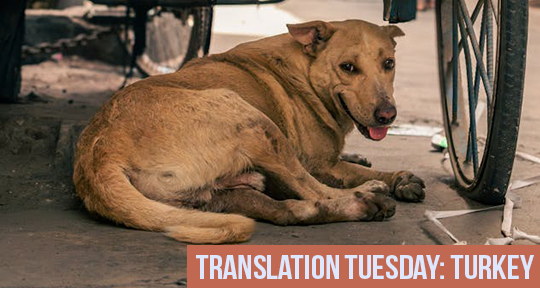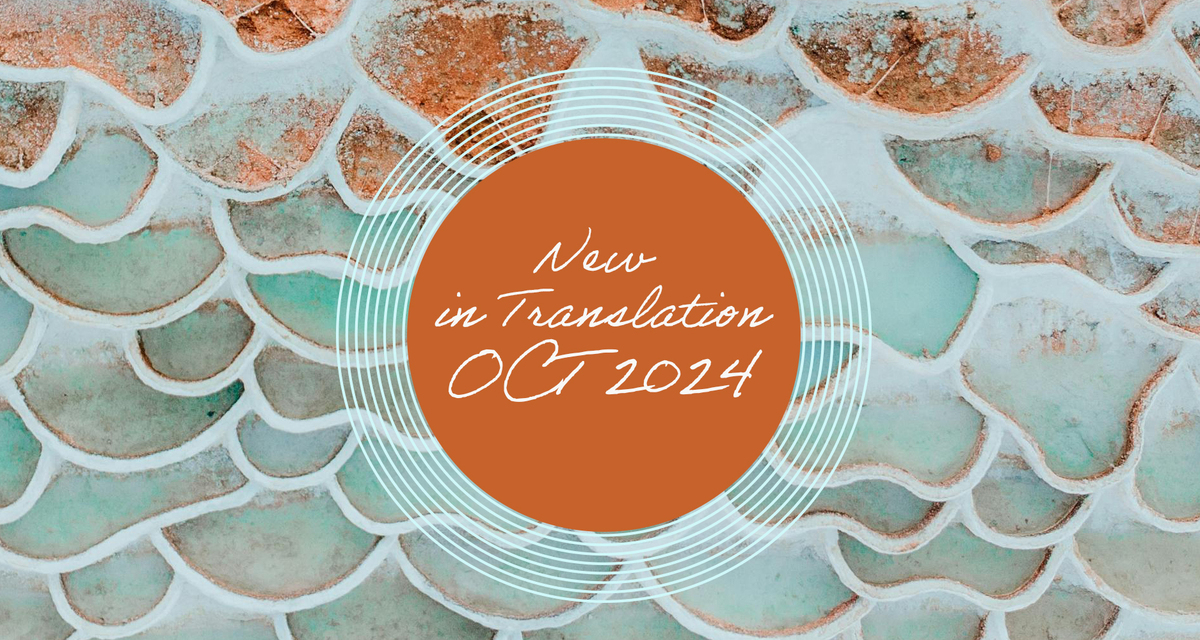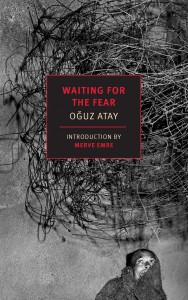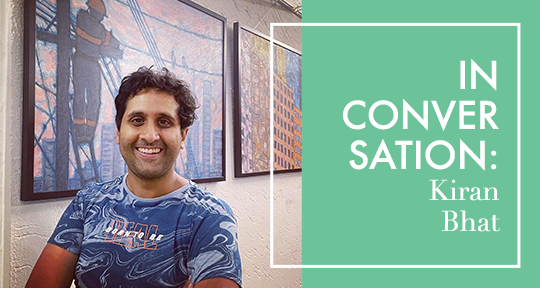Our August Book Club selection, Ebru Ojen’s Lojman, is a vivid and absorbing novel that traces the depths and illusions of psychic agony, pulled along by a singular, poetic style. Within these flowing, absorbing pages of emotional surges, however, is a representation of how imposed orders and hierarchies can rob the individual of humanity. In this following interview, translators Aron Aji and Selin Gökçesu speak to us on the process of working with this language its rawness and its darkness, the narrative’s subtle political symbols, how it moves on from the Turkey’s social realist movement and its sociolinguistic history.
The Asymptote Book Club aspires to bring the best in translated fiction every month to readers around the world. You can sign up to receive next month’s selection on our website for as little as USD20 per book; once you’re a member, join our Facebook group for exclusive book club discussions and receive invitations to our members-only Zoom interviews with the author or the translator of each title.
Xiao Yue Shan (XYS): Lojman is a book that unleashes its narrative and its characters on us. There are so many uncontrollable elements in it, but what reigns it in is the prose, which is so precise and lyrical. I’m wondering what it was like reading this book in the original Turkish—if there was that similar effect, and if there were stylistic elements you were seeking specifically to preserve in translation.
Selin Gökçesu (SG): Lojman is very immersive, beautiful, and lyrical and Turkish too. I don’t keep up with contemporary Turkish literature as much as I would like to, but within what I’ve seen come out, this book is very in its lyricism—but also its topic and voice. Part of the unruliness of the narrative can perhaps be attributed to the Turkish editing style, which is definitely more open than in the American publishing industry; different voices will enter and come out barely edited—which has its drawbacks. The final translation, after Aron put the final touches on it, is a lot more polished in English then it’s in Turkish, but it still has the spirit of the original.
But I will say that Lojman’s forcefulness and gushing and uncontrolled quality, the very untamed writing—some of that is a product of how open the Turkish publication system is. They’ll allow people in, and they’ll publish things with very little editing or external control. So you get these really raw, powerful stories in different voices. Turkish contemporary literature is maybe less middle-class than American literature, so the class boundaries of allowing different voices in is a little bit more flexible, resulting in such unique products. I’m so glad we came together and caught Lojman amidst so many books being published in Turkey. It’s really serendipitous that this landed where it did.
Aron Aji (AA): I agree with everything Selin said about Ebru’s voice and writing style. To add to that, I was in Istanbul with Ebru this summer—she just finished her new novel. It’s being edited, and hopefully will be coming out in the next couple of months. It’s an entirely different novel. The form is entirely different, the language is incredibly elevated, but there was something very, very similar to the way she built the main character. I asked her to tell me what she was trying to do, and she mentioned how people always talk about the author as the witness of a character’s life and an author as the witness of her time. Then she said, “I want to put the reader in a position of witness, and the way I can do that is by pushing the reader as far into the mindset of the main character as possible.”
As you know, the characters in Lojman are very damaged, to say the least; your review also shows how that damage becomes pervasive. Ebru really is a writer that doesn’t want to stand in the way of the reader, so she writes with this incredible euphoria. There is another Turkish author, Aslı Erdoğan (also published by City Lights), who writes with euphoria, but it’s a lot more controlled, oddly enough. What we have in Ebru is really the rawest possible witnessing of a mind falling apart.
So by choosing to do this as a co-translation, we actually mixed two voices and two consciousnesses into the process—the splitting of voices. I should also say that Elaine of City Lights was incredible in her later editing. And the more voices and consciousnesses we incorporated, the more we were able to crystallize the language, but also retain its rawness. READ MORE…

